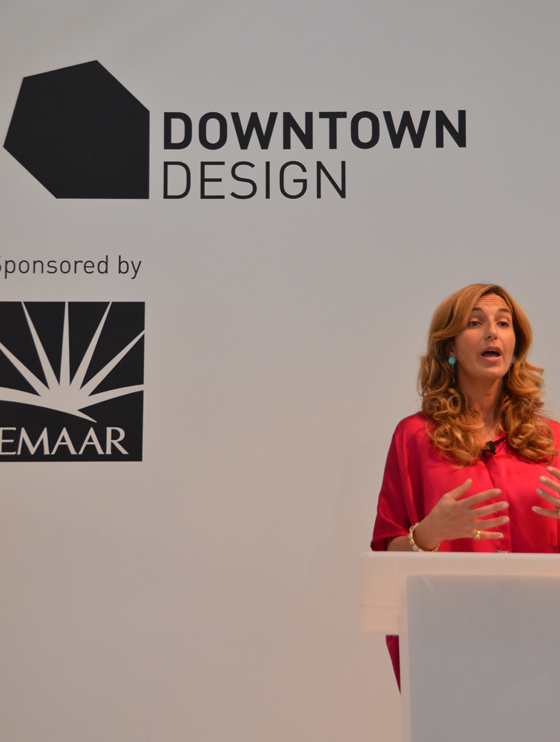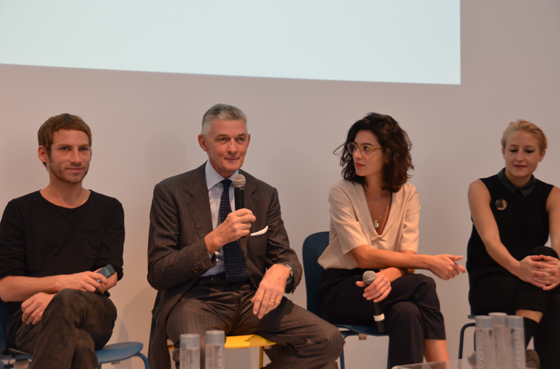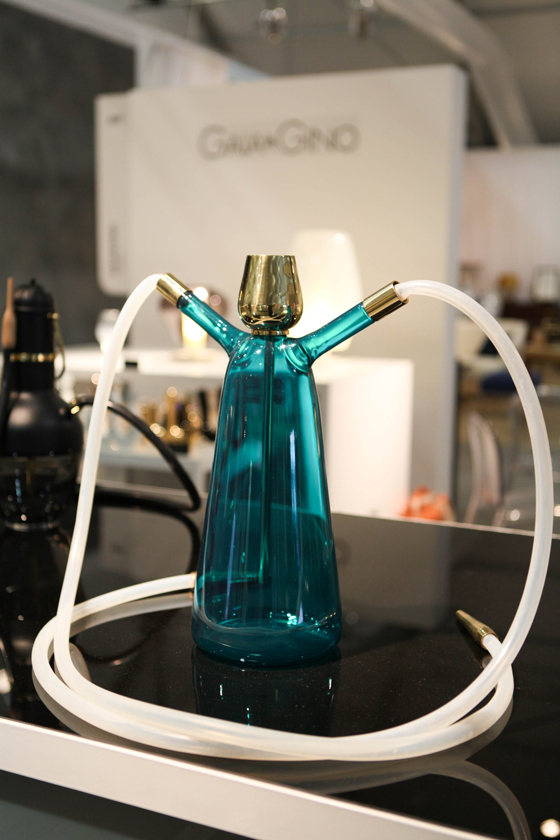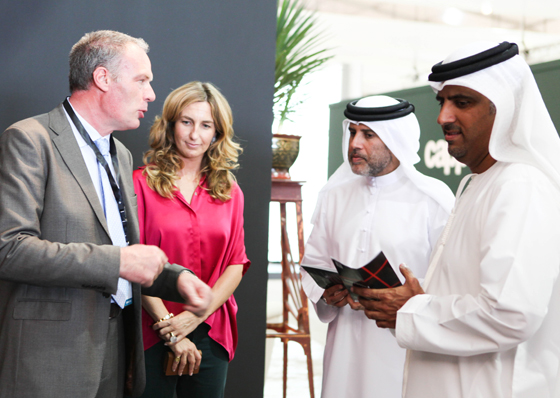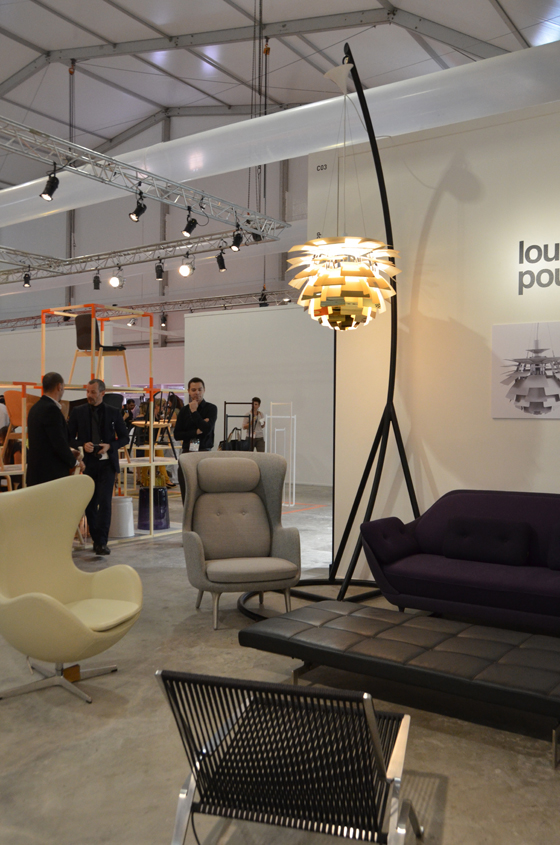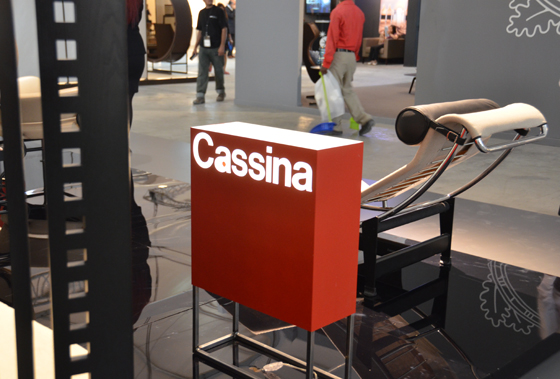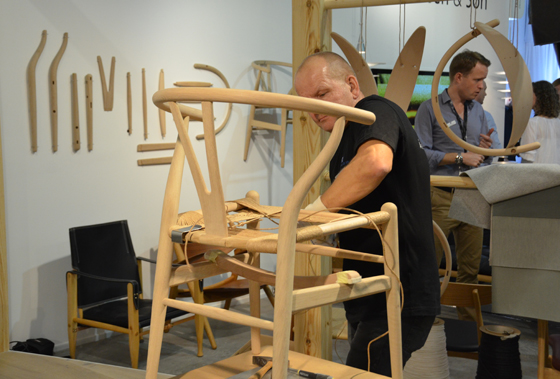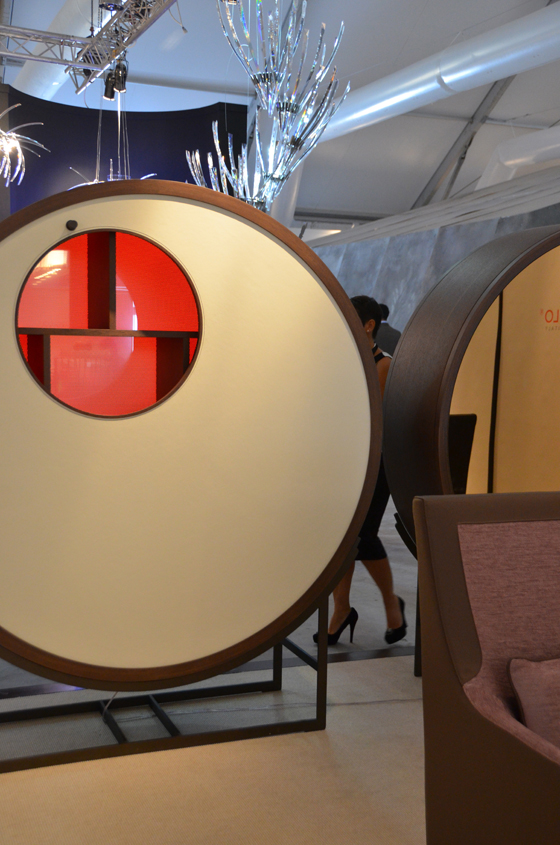The Only Way is Up: Downtown Design Dubai 2013
Texte par Simon Keane-Cowell
Zürich, Suisse
12.11.13
The first-ever design show in the Middle East to unite on a single platform some of the best global design brands with award-winning design from the region, Dubai's new Downtown Design fair, like the soaring Burj Khalifa, has its sights set high.
The inaugural edition of Downtown Design pitched its tent – quite literally – next to the soaring heights of Dubai's now iconic Burj Khalifa
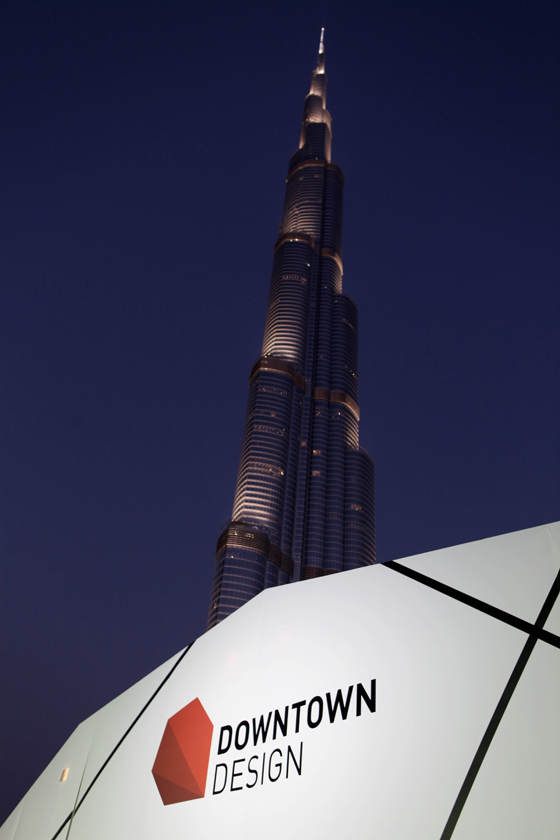
The inaugural edition of Downtown Design pitched its tent – quite literally – next to the soaring heights of Dubai's now iconic Burj Khalifa
בThat’s somewhere I’ve never really wanted to go, to be honest.’
‘Don’t think I’d like it. Not that I've been.'
There’s no one quite like a journalist to voice an opinion. And there’s nowhere, it seems, quite like Dubai when it comes to design destinations to elicit an opinion. Albeit ones based on preconceived ideas, rather than direct experience. You see, my esteemed colleagues cited above aren't alone in never having been to that love-it-or-hate-it metropolis in the Middle East. Neither had I until I visited the inaugural edition of the Downtown Design fair this month. What’s more, and rather astoundingly, it was the first time for all the other journos bar one on our press trip. It would appear that there are a lot of opinions circulating out there based on scant little reality, which is, to say the least, somewhat odd. As the old Dr Pepper advertising slogan goes, ‘You’ve got to try it to like it.’
To say that my visit to Dubai was some kind of Damascene conversion would be an overstatement. (Excuse the mixed Middle Eastern geography.) On one level, it was what I expected it to be. A glitzy, skyscraping boomtown, which, situated in the desert, is at once compelling in terms of the scale of its urban ambition, its architectural derring-do, and its sheer will to exist in such a physical environment, and yet troubling in its no-holds-barred consumption and uneasy relation to sustainability.
Fair Director Cristina Romelli Gervasoni welcomes visitors to Downtown Design. Invited speakers included (left to right) Ora Ito, Guilio Cappellini, Pauline Deltour and Victoria Wilmotte
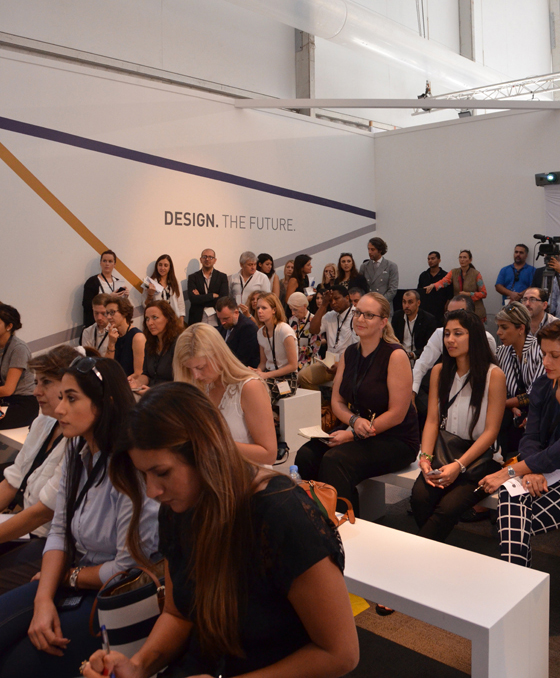
Fair Director Cristina Romelli Gervasoni welcomes visitors to Downtown Design. Invited speakers included (left to right) Ora Ito, Guilio Cappellini, Pauline Deltour and Victoria Wilmotte
×Yet whatever your take on Dubai and its superlatives – the tallest building in the world, the largest number of cranes in operation, the world’s biggest shopping mall – it’s hard not to be awestruck by the speed of the city’s coming into being and its seemingly unbounded development. In little over a quarter of a century, this stretch of Persian Gulf coastline has seen a small trading port transform itself into the region’s leading business, cultural and transport hub, an international, highly cosmopolitan urban centre with over two million, ethnically and culturally diverse inhabitants.
While the Dubai-based airline Emirates may offer the smoothest of in-flight services, turbulence of an economic kind was to beset the city in the period immediately following the global economic downtown, with neighbouring Abu Dhabi coming to its financial aid in the form of a $10 billion loan. But Dubai has performed a spectacular rebound since then, with a new metro system in place and entirely new urban districts in the planning. A 2,000-seater opera house by property developers Emaar will form the cultural and architectural highlight of the city’s appropriately named Modern Art Museum and Opera House District, while the Dubai Design District, due to be completed in 2015, will house the emirate’s design, fashion, design and luxury industries. Not to mention Mohammed bin Rashid City (yes, city), a tourist district that will be home to 100 new hotels and the Mall of the World (yes, world).
A showcase for regional design, as much as for big-name global brands. Abu Dhabi-based Atelier AK (top), Turkish label Gaia & Gino (middle), and tables by Emirati design Khalid Shafar (above)
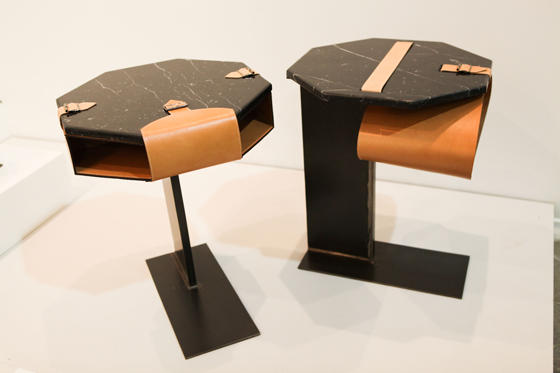
A showcase for regional design, as much as for big-name global brands. Abu Dhabi-based Atelier AK (top), Turkish label Gaia & Gino (middle), and tables by Emirati design Khalid Shafar (above)
×And let there be no doubt. With the record-breaking, sky-punching (rather than sky-scraping) Burj Khalifa completed in a mere five years, there’s every reason to believe that these projects will be delivered in a staggeringly short amount of time.
Foundations are being laid too in terms of design. Organised by the team behind Art Dubai and Design Days Dubai, Downtown Design is the first international design trade fair in the region, which, although somewhat boutique in size for its first outing, already has its sights set on (in true Dubai style) something a lot larger for its 2014 edition. Carefully curated and highly polished, the fair responds to a real need in the Middle East for a platform that supports key global brands in their positioning, but one that also presents regional design talent to international visitors. What’s more, it’s also attempting to change cultural mindsets, educating local audiences about the value of good design and why it often comes at a premium. Design as long-term investment over short-term purchase.
'We see Downtown Design as a platform for promoting what good design is about,' explains Downtown Design Head of Marketing Mark Stobbs
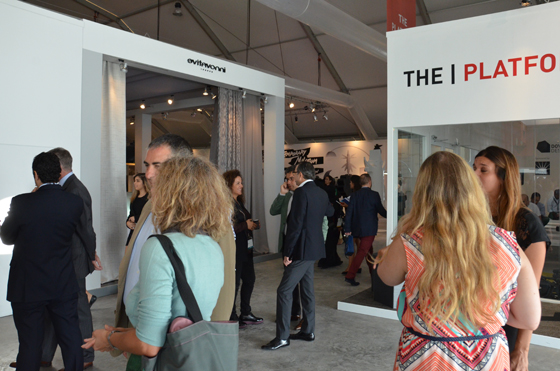
'We see Downtown Design as a platform for promoting what good design is about,' explains Downtown Design Head of Marketing Mark Stobbs
×While in Dubai, I spoke to Fair Director Cristina Romelli Gervasoni and Head of Marketing Mark Stobbs about the whys and wherefores of Downtown Design and how they are cutting their cloth in different sizes to meet international, regional and local needs.
....
There are a lot of design fairs out there. Why Downtown Design?
Cristina Romelli Gervasoni: The objective was really to have a platform for design in the Middle East, to showcase design in a certain way – more quality-driven, more attention to detail. More the value of crafts as well. Dubai is a hub for Asia and for Africa. We’re right in the centre of two major emerging markets. Add to this the developments happening in Dubai. Emaar is launching new projects. There is also Expo 2020. And the World Cup in Qatar, so the whole region is really growing and developing. And when you come here, you see that it’s a safe country. And there’s an emphasis on quality. There’s so much that can be done. So we really want to establish Dubai as a global hub for design. It’s ambitious, but we think we can make it.
Mark Stobbs: Dubai is a cultural melting pot. It’s become the centre of the world for a lot of people, because of Emirates, because of the fact that it’s a hub. Because of the focus on Dubai, there’s a need for this type of project to promote what these brands are doing globally. We want Downtown Design to be an educational process for both the brands themselves and for the visitors.
Downtown Design offers key global brands the opportunity to position themselves within an increasingly important regional market
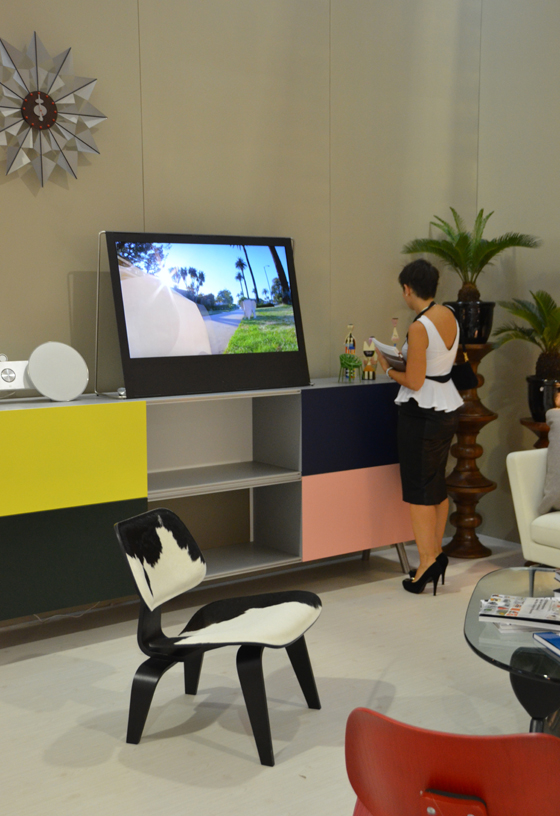
Downtown Design offers key global brands the opportunity to position themselves within an increasingly important regional market
×What level are you starting at? What’s the general understanding of design here in Dubai and in the region?
CRG: The context is so recent. If you consider they have built everything here in such a short space of time, it’s amazing. I think very often when you go to emerging countries, you really have to teach people what’s behind a product. Why a product is made in a certain way. Why it costs a certain amount of money. Because you have a guarantee: it’s quality-driven or it’s handmade. So we really need to explain this. So that’s a key objective of this fair. We have offered brands the opportunity to take visitors behind the scenes, to show them some of the process, why a project or a product is made the way it is, the value of craft. The idea is really to transfer knowledge.
The understanding of design is growing, but it’s still very young. If you consider that there are just a handful of showrooms. Poltrona Frau opened this year. Armani/Casa, too. B&B Italia. So they are all reasons. But we need to grow. There’s a genuine interest and a new wave going on in Dubai.
MS: We see Downtown Design as a platform for promoting what good design is about. This region has really lacked an understanding of what these brands are and what they do, and why they do cost what they do. Good design is about an investment because you want something to last a lifetime and that’s the whole purpose of it. With the investment that’s going on in the Dubai Design District and the Mohammed bin Rashid City, and just the fact that the Downtown area itself is becoming an opera district with an arts and culture focus, it’s the perfect time to do something like this.
Fair Director Cristina Romelli Gervasoni: 'We have offered brands the opportunity to take visitors behind the scenes, to show them some of the process, the value of craft. The idea is really to transfer knowledge'
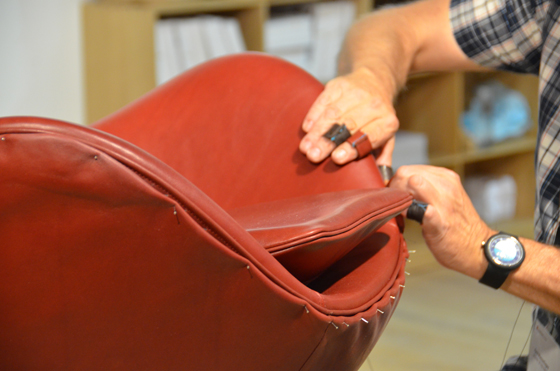
Fair Director Cristina Romelli Gervasoni: 'We have offered brands the opportunity to take visitors behind the scenes, to show them some of the process, the value of craft. The idea is really to transfer knowledge'
×What is the business of design like in Dubai and in the region?
CRG: There are two major parts. Contract, on the one hand. A lot of hotels, hospitality, developers. This is really the biggest part. If you consider the amount of buildings planned in Dubai. And in Saudi. Universities. Entire cities. Qatar as well is growing so much. So we have this part which is really important and companies especially are working on this side of things. Then we have retail, which is still small, but growing. People used to come to Dubai for one or two years to work and then leave. Now they’re staying. So retail is growing. The numbers are amazing. If you look at Bloomingdale’s Home, the daily footfall alone is over 3,000.
MS: It’s important to have a cultural appreciation of how business is done here. Things can change at the last minute and you have to acclimatise to that, and to your customers and business. But at the same time, an understanding of how things are done globally in business is coming to the region. We have an amazing ex-pat community here and everyone brings an element of learning from each of their countries to the region. That brings a great diversity to Dubai. It’s important to have a cultural understanding of how the UAE works but there’s also an acceptance from the region of how business internationally is done. I think that creates an interesting model.
'[Downtown Design] is crucial for the region,' argues Fair Director Cristina Romelli Gervasoni. 'It’s what the region needs'
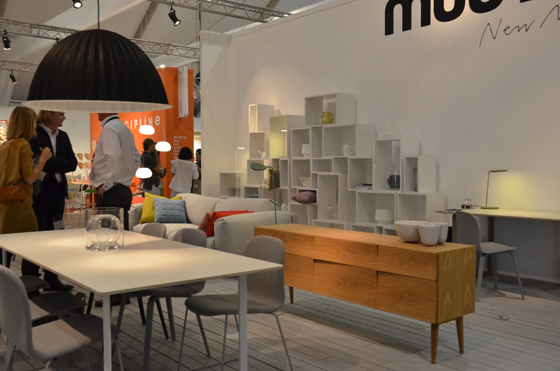
'[Downtown Design] is crucial for the region,' argues Fair Director Cristina Romelli Gervasoni. 'It’s what the region needs'
×How did you curate Downtown Design? What were your selection criteria?
CRG: The idea was to bring to Dubai something that had never been seen here before. Big, top-quality brands like Vitra, Poltrona Frau, Cassina and Cappellini, as well as companies renowned all around the world and who’ve won awards, like Gaia & Gino, Pinetti and other brands. In the end, we have a selection of companies that could really work in the region. The central idea is to showcase something that truly meets the needs of Dubai and of the region.
What about local, regional design, as opposed to global design brands? How does it fit into this scheme?
CRG: Well, it’s amazing to have Atelier AK here. It’s a local tannery producing chrome-free camel leather, owned by the government of Abu Dhabi. It’s very advanced in terms of technology and one of the few in the world working this way. They are using Downtown Design as their international launch, so this is an example of the local becoming international. We really want to be this kind of platform. We also have Khalid Shafar, who is exhibiting with Nouvelle Vague Volume II. He has already collaborated with Moissonnier and Tai Ping. So local designers can also be part of this international scene.
What’s the future of Downtown Design?
CRG: We want to grow. Guilio Cappellini has said he would like to see the size of the fair double. This project is crucial for the region, we believe. It’s what the region needs.
....

